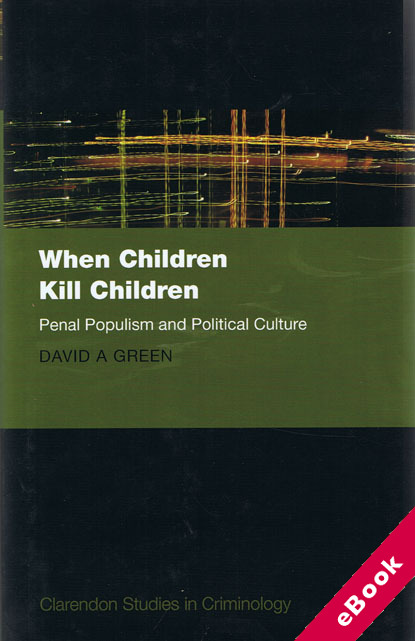
The device(s) you use to access the eBook content must be authorized with an Adobe ID before you download the product otherwise it will fail to register correctly.
For further information see https://www.wildy.com/ebook-formats
Once the order is confirmed an automated e-mail will be sent to you to allow you to download the eBook.
All eBooks are supplied firm sale and cannot be returned. If you believe there is a fault with your eBook then contact us on ebooks@wildy.com and we will help in resolving the issue. This does not affect your statutory rights.
This title examines the role of political culture and penal populism in the response to the emotive subject of child-on-child homicide.
Green explores the reasons underlying the vastly differing responses of the English and Norwegian criminal justice systems to the cases of James Bulger and Silje Redergard respectively. Whilst James Bulger's killers were subject to extreme press and public hostility, held in secure detention for nine months and tried in an adverserial court, Redergard's killers were shielded from public antagonism and carefully reintegrated into the local community.
This book argues that English adverserial political culture creates far more incentives to politicize high-profile crimes than Norwegian consensus political culture. Drawing on a wealth of empirical research, Green suggests that the tendency for politicians to justify punitive responses to crime by invoking harsh political attitudes is based upon a flawed understanding of public opinion.
In a compelling study, Green proposes a more deliberative response to crime is possible by making English culture less adverserial and by making informed public judgement more assessable.